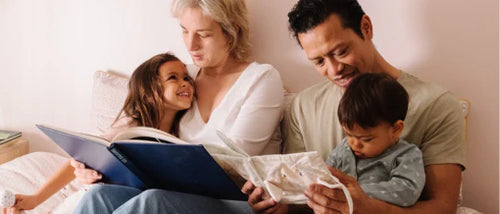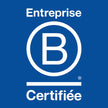Written in partnership with Dr Clarence De BELILOVSKY, dermatologist member of the Mustela circle of experts. By adopting a few good daily habits, your baby will have every reason to live well... everywhere. CITY: WHAT HYGIENE TO ADOPT WITH ATOPIC BABY ECZEMA? It's true that cities are more polluted. Dust, impurities, small particles from exhaust gases... This pollution puts the skin in contact with allergenic elements (see our file on atopic eczema). It also makes pollen more irritating. To do this, you can slip a mist and your emollient treatment into your bag if you think your child may be particularly exposed to it, during an outing for example. For the rest, a good shower when you come home in the evening can simply allow him to get rid of these parasites and prepare him for a good night's sleep. Here too, specific baby-child emollient treatments will be great allies (see The benefits of emollients). And rest assured, one shower is enough. To feel clean in this environment, we tend to have too much hygiene in the city. However, this habit could help dry out baby's skin. Then, by exposing your child less to germs, his immune system activates more than necessary when he is confronted with them. Which can make him more susceptible to allergies. Even in atopic babies, the immune system needs to be stimulated by infections in early childhood. Paying attention to dust or mites to avoid the appearance of atopic eczema is very good. Paying attention to everything doesn't necessarily help you get over it. Moreover, children affected by atopic eczema are more numerous in cities where hygiene can be excessive. Speaking of showering, tap water can play a role. Depending on its level of limestone, its bacteriological quality, any traces of pesticides, it will have an influence on the drying or irritation of the skin. Here, everything depends on the regions and the population: the more inhabitants, the more regular the checks. And the more regular the checks, the better the water quality. You will have understood, city water could be less aggressive for baby's sensitized skin... Good point in that regard. If necessary, to compensate for the drying effects of washing, you can use a specific baby-child bath oil. Finally, and as strange as it may seem, an effective way to fight against urban pollution... is to ventilate your interior! Indeed, allergens and other impurities tend to lodge there and their concentration can become increasingly significant if they remain “locked in”. COUNTRYSIDE, MOUNTAIN: WHAT HYGIENE AND LIFE PRACTICES WITH BABY ATOPIC ECZEMA? In the countryside and mountains, clean air is always an advantage that we would like to offer to our child, whether they are atopic or not. If you live in the mountains, you may also offer him a (almost) mite-free world! Indeed, although they love indoors for the warmth, dust mites hate living at altitude. Because from 1500 meters, it rarely gets above 25°, their favorite temperature. However, who says “pure air”, also says more animals and plants. Depending on your child's sensitivity, they may have an influence on reactions or allergies. In spring, the strong presence of pollen can also tickle your immune system. Here too, a mist and your emollient treatment on hand will be a good weapon. Just like a shower a day, preferably in the evening, and the application of emollient treatments which will remain a good way to protect your baby's skin.
Countryside vs. urban: is there an impact on atopic dermatitis?
Updated on
July 19, 2024




